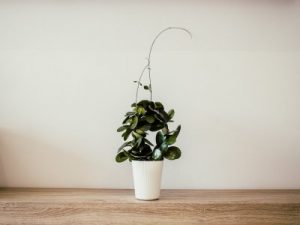Minimalism is the practice of living frugally in a consumer led, possession obsessed society. The person makes an effort to live with a few material possessions. Minimalism has some negative stigma attached such as being for those of privileged, and being impractical. However, it is far from that and has social, mental and environmental benefits. It is argued to provide freedom from consumerism, guilt, fear and depression. Sounds great right?
Why add minimalism to your life?
Social benefits – give to charity, give to housing associations,
less self-centred, less consuming 
Mental benefits – a clear home and lifestyle means a clear head. It has been found that a cluttered home can cause added stress. There’s nothing more soothing than a clear, tidy room. Before I can start any sort of writing or work I need a clear space or surface. Minimalist lifestyle allows you to make decisions more clearly and with less distractions. This is beneficial to stop worry and overwhelm.
Organising your home can reduce stress as you are in a clear environment which you are in control of.
Environmental benefits- people who are minimalist make less daily waste then non-minimalists. They are consciously more frugal with what they dispose of, how much water they use and travel in the most energy-efficient ways such as walking and cycling.
What do you do with all your unwanted stuff?
Minimalism can seem dire, and should not be attempted in one go. It can take years to learn the discipline and will power to abstain from consuming and hoarding. Start slowly with a general declutter of your home. You’ll be surprised how much you need to remove. Removal companies like manor clearance can take care of this. They will know the best ways to take care of your old possessions in a responsible ethical way. Landfills will not be the first resort. Instead the materials will be disposed of with the environment in mind. This agrees with the minimalist ethos.